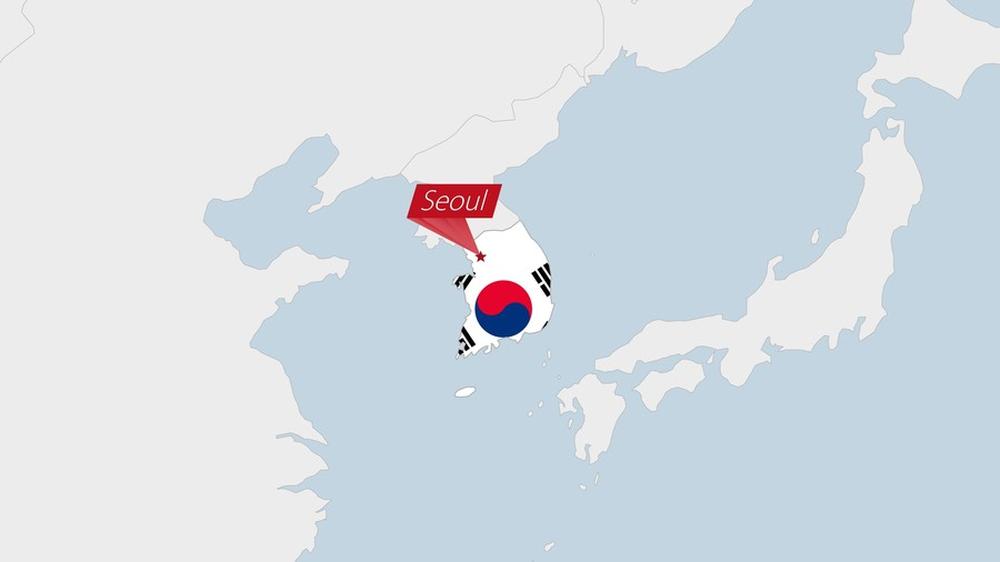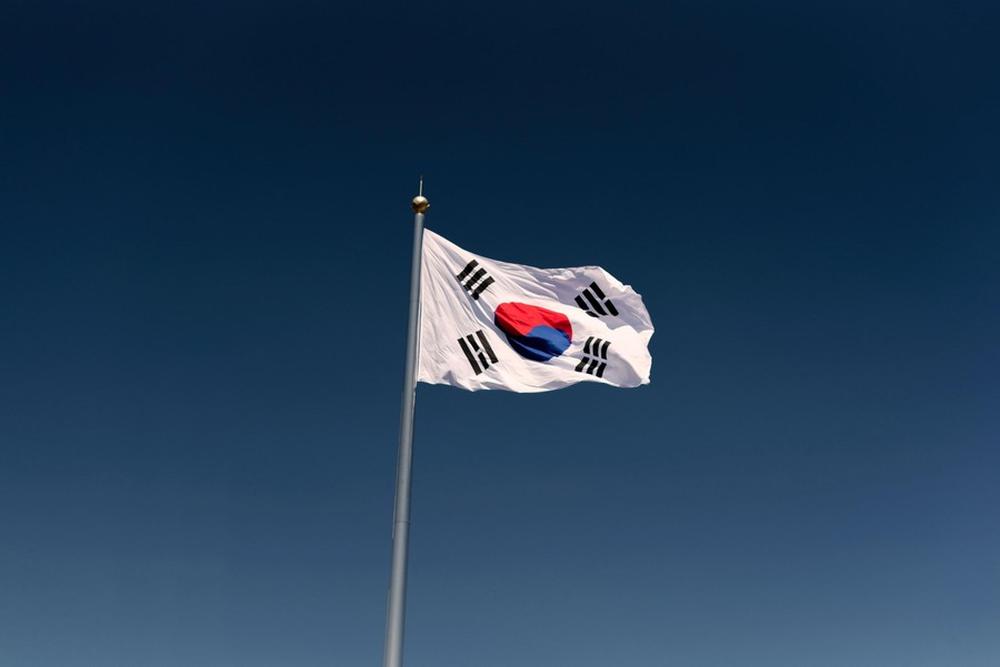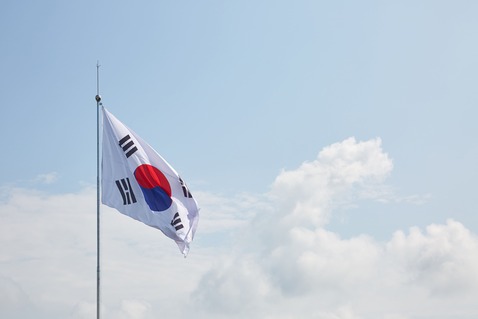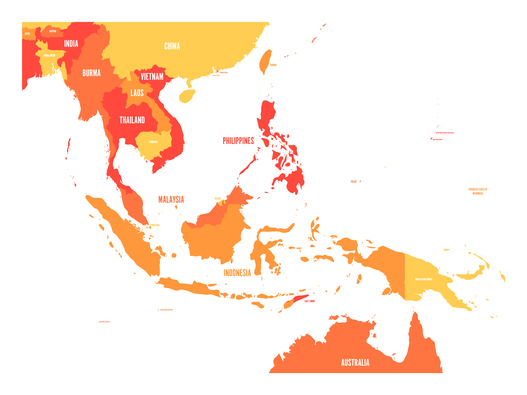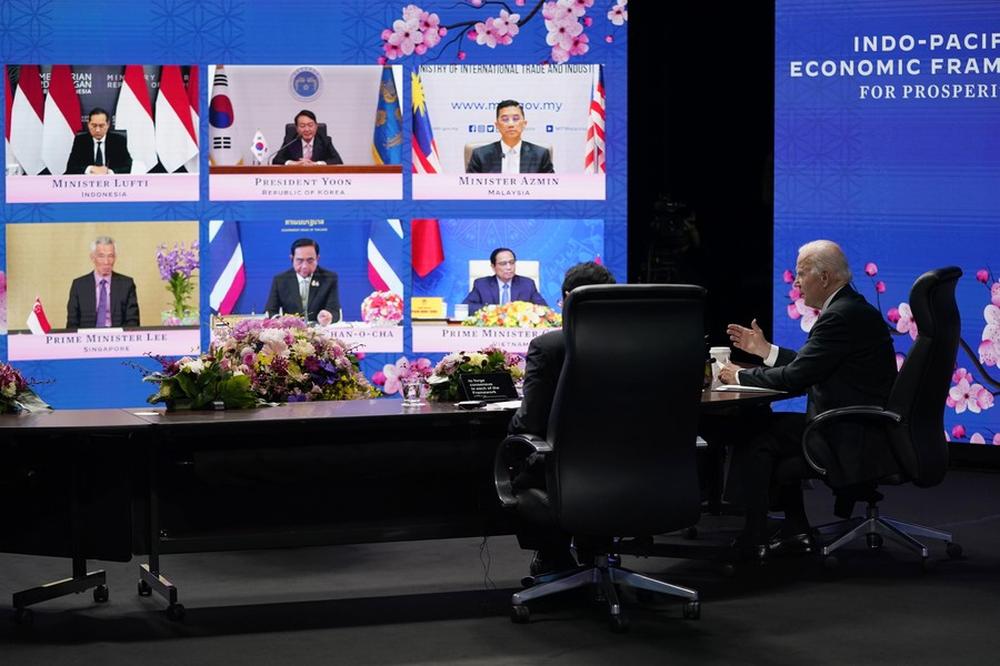- #China-US Competition
- #Global Issues
- #Multilateral Relations
- #South Korea
- #US Foreign Policy

► Korea’s own Indo-Pacific strategy should emphasize the importance of universal values such as “rule of law,” “freedom of navigation,” and “openness and inclusiveness” in the regional context.
► Korea’s Indo-Pacific strategy paper must reflect its strategic thinking regarding the scope of Indo-Pacific region, its active willingness to engage in the region’s non-traditional security issues as a middle power, and a blueprint for mini-lateral cooperation among the region’s middle powers.
► Korea has remained passive in getting involved in security issues beyond the Korean Peninsula. In order to quell these criticisms and enhance its standing in security-related issues, Korea’s Indo-Pacific strategy must reflect Korea’s willingness to take on a more active role in coping with the Indo-Pacific’s non-traditional security issues.
The Yoon Suk Yeol administration, which took office in May 2022, declared that it will announce Korea’s own Indo-Pacific strategy this year. It appears that Korea will soon join a number of countries that have published their own Indo-Pacific strategy papers. Korea’s Indo-Pacific strategy paper must emphasize the importance of universal values such as “rule of law, ”freedom of navigation,” and “openness and inclusiveness” in the regional context. The geoeconomic and geopolitical competition between the United States and China is projected to intensify in the Indo-Pacific region and force regional actors to pick a side. When faced with this dilemma across various issues, Korea must refer to the universal values included in the Indo-Pacific strategy paper as the basis for its decision. In addition to universal values, Korea’s Indo-Pacific strategy must reflect its strategic thinking regarding the Indo-Pacific region, its active willingness to engage in the region’s non-traditional security issues as a middle power, and a blueprint for promoting mini-lateral cooperation among the region’s middle powers.
First, Korea’s Indo-Pacific strategy must define the geographical boundary of the Indo-Pacific region to comprehensively include European countries such as France and the United Kingdom. The Indo-Pacific region refers to a geographical space labeled by the United States to emphasize the strategic importance of India. Even in the concept of Asia-Pacific, a new concept of geographical space that should India as a regional actor was not necessary given that India was already a member of the East Asia Summit and APEC. However, the Indo-Pacific strategic space—which connects the Pacific with the Indian Ocean—greatly stresses the importance of India’s security and economy. Moreover, France and the United Kingdom have begun to assert their naval presence in the western Indian Ocean including the “Horn of Africa” and have expanded their security-related activities towards the Indo-Pacific. Therefore, defining and expanding the geographical boundary of the Indo-Pacific region to include India as well as the area located between western India and eastern Africa are meaningful in the sense that it will allow France and the United Kingdom—two countries that have territories in the Indian Ocean—to be considered regional actors.
The reason behind Korea’s need to expand its geographical definition of the Indo-Pacific lies in the fact that the US-China strategic competition is transforming into a competition between China and the Western bloc. France maintains 93% of its EEZs in the Indo-Pacific and the United Kingdom, with its declaration to be a “Global Britain,” conducts naval operations in the region. Moreover, they have begun to take active participation in multilateral military training exercises which members of the QUAD (a security cooperation mechanism consisting of the United States, Japan, India, and Australia) conduct in the Pacific and the Indian Ocean. In 2020, the trilateral dialogue between India, Australia, and France took place under the leadership of France. If these three countries share military intelligence gathered in Réunion (territory of France in the Indian Ocean), Cocos Islands (territory of Australia), and Andaman and Nicorbar Islands (territory located in eastern India) and allow one another’s naval vessels to approach the areas, it will provide these countries with an opportunity to control a significant part of the vast Indian Ocean. Located within the aforementioned three locations is Diego Garcia, an island of the British Indian Ocean territory that hosts the U.S. Navy. In September 2021, Australia, the United Kingdom, and the United States established AUKUS. The NATO Summit held in June 2022 was symbolic in the sense that the attendance by Korea, Japan, Australia, and New Zealand implied a greater possibility that NATO and American allies in the region will become closely linked in the Indo-Pacific. In this sense, expanding the geographical definition of the Indo-Pacific to include eastern Africa implies that Korea is approaching the geopolitical struggle in the Indo-Pacific as a competition between China and the West and that it will enhance its security cooperation with the latter. To note, Japan has already begun to strengthen its security cooperation with European countries including France and the United Kingdom.
Second, Korea’s Indo-Pacific strategy must clearly express its strong willingness to contribute to regional security. In principle, Korea has supported the peaceful resolution of the South China Sea dispute, the rule of law, and the freedom of navigation and aviation. However, it has maintained its distance from sensitive security issues. When the United States began to implement its Indo-Pacific strategy and asked Korea to support it, the previous Moon administration responded by trying to find nexuses between the American strategy and its New Southern Policy(NSP). Korea then implemented a NSP-Plus, focusing on the less-developed “peace”-related initiatives among the NSP’s 3P (People, Prosperity, and Peace). This enabled Korea to seek cooperation with the United States in non-traditional security areas including maritime security. Unfortunately, both countries have so far been unable to produce tangible results. Contributing to a regional actor’s maritime security can be interpreted as a collaborative response to non-traditional security issues. However, policy coordination with the United States or members of the Quad may be misinterpreted as enhancing response capabilities against China’s grey-zone tactics. Given Korea’s reservations about mutual security cooperation, it has received its share of criticisms from members of the Quad as well as regional actors that, despite its growing national power, Korea has remained passive in getting involved in security issues beyond the Korean Peninsula.
In order to quell these criticisms and enhance its standing in security-related issues, Korea’s Indo-Pacific strategy must reflect Korea’s willingness to take on a more active role in resolving the Indo-Pacific’s non-traditional security issues. Specifically, it is worth mentioning Quad states’ commitment and contribution to maritime capacity-building as well as maritime domain awareness. During the third Quad summit meeting in 2022, members agreed to launch the Indo-Pacific Partnership for Maritime Domain Awareness (IPMDA). Since the United States and other members of the Quad are actively committing to enhancing maritime capacity-building and maritime domain awareness, Korea must also continue to make contributions to other regional countries and cooperate/coordinate with the Quad members.
Third, Korea’s Indo-Pacific strategy must clearly outline Korea’s strong commitment to middle power-oriented mini-lateralism. The intensifying US-China great power competition is leading to greater uncertainties and posing serious threats for many regional actors, including Korea. Therefore, there is a growing need for an alternative security architecture that shifts away from the US-China competition. It would be difficult for a middle power to independently establish and maintain a regional security architecture. However, a coalition of middle powers with the goal to establish an alternative security architecture in the region may generate some leverage against the United States and China. In other words, a regional mini-lateralism involving middle powers does not have the influence to generate changes in US-China dynamics but it may provide enough positional power in responding to how the United States and China each conduct and maintain its regional networks. Moreover, the deterioration of economic globalization and complex interdependence has complicated the traditional exertion of power between the United States and China. They are being forced to accept, to some degree, various alternative security architectures in terms of managing uncertainties and threats. This will allow mini-lateralism among regional middle powers to fill an empty hole in the United States and China’s networks. If this middle-power coalition can play a bridging role, both the United States and China will come to accept its influence and status.
If the mini-lateral coalition consisting of key developed countries in the Indo-Pacific region including Korea, Japan, Australia, India, Indonesia, and Vietnam could enhance its status within the US-led security network and improve its autonomy, it could prevent the US-led security network from becoming an outright mechanism to contain China in the US-China competition. In addition, if the coalition could link with mini lateralism in ASEAN, such as ones to enhance cooperation in the Mekong River, improve efforts to eradicate piracy, and share maritime intelligence, it could serve as a foundation for a multilateral security cooperation mechanism that is independent of the US-China strategic competition. In particular, Korea should consider improving bilateral relations with Australia and Indonesia, as well as trilateral cooperation with these two countries (KIA: Korea, India, Australia) as part of its Indo-Pacific strategy. If we consider the rapid economic development of Indonesia and its leading status within ASEAN, and the economic and military power of Korea and Australia as leading middle powers, a mini-lateral consultative group among them could develop into important security and economic entity in the region.
Prof. Jae Jeok Park, PhD, is Associate Professor at the Graduate School of International and Area Studies, Hankuk University of Foreign Studies in Seoul. Previously, he worked as a visiting professor at Institute of Foreign Affairs and National Security(IFANS) in 2010 and a research fellow at Korea Institute for National Unification(KINU) between 2010 and 2014. His research interests include alliance politics, US security policy in Indo-Pacific, the US-ROK alliance, and the US-Australia alliance. He received his B.A and M.I.S. from Yonsei University, M.A. and M.S. from Northwestern University in the US, and Ph.D. from Australian National University (December 2009). While studying in the US, he was supported by the Fulbright Scholarship. He has received a number of research grants, including ones commissioned by South Korea’s Ministry of Foreign Affairs and Ministry of Education. He served as a Secretary General for the CSCAP(Council on Security Cooperation in the Asia-Pacific)-Korea between 2015 and 2019.

